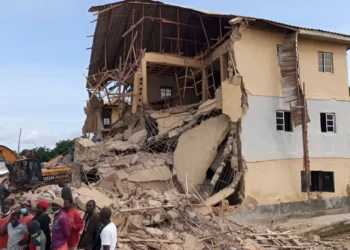The rapid urbanization of Abuja, Nigeria’s capital city, has led to an escalating rent crisis that disproportionately affects low- and middle-income residents. With yearly rents for modest apartments often out of reach for the average worker, housing affordability has become a critical social and economic issue in the Federal Capital Territory.
At the heart of this crisis is the widening gap between income levels and rents. While the city continues to attract professionals, civil servants, and job seekers from across the country, housing supply remains skewed toward high-end developments catering to the wealthy. Affordable rental options are scarce, and the demand for decent, reasonably priced housing far outweighs the available stock.
Key Challenges:
Limited Affordable Housing Stock: The majority of new constructions in Abuja target luxury buyers, neglecting the growing demand for low-cost rental units.
Exploitative Rental Practices: Landlords often demand one or two years’ rent upfront, effectively excluding many potential tenants from securing housing.
Rising Land and Construction Costs: Bureaucratic hurdles, high land prices, and expensive building materials deter affordable housing projects.
Inadequate Urban Planning: Overconcentration of development in central districts such as the phase 1 and 2 of Abuja drive up prices, while satellite towns remain underdeveloped and poorly connected.
Strategies for Affordable and Sustainable Housing Solutions:
Pro-Poor Housing Policies
Government must take a leading role in formulating policies that prioritize affordability—introducing rent control regulations, capping advance rent payments, and mandating affordable units in all major housing projects.
Incentives for Affordable Housing Developers
Tax breaks, access to subsidized land, and low-interest financing can encourage private developers to invest in budget-friendly housing. Housing cooperatives and not-for-profit models should also be explored as viable alternatives.
Expansion of Public Housing Schemes
The revival and scaling of public housing programs, particularly through the Federal Housing Authority and Federal Mortgage Bank of Nigeria, can deliver affordable units to civil servants, teachers, and other essential workers.
Development of Satellite Towns
Improving infrastructure in suburbs like Kubwa, Gwagwalada, and Kuje—especially roads and transport links—will ease pressure on central districts and make these areas more attractive and affordable for residents.
Affordable Rent-to-Own and Mortgage Options
Creating flexible rent-to-own schemes and expanding access to low-interest mortgages will empower tenants to transition into homeowners over time, reducing long-term housing insecurity.
Regulating the Rental Market
Establishing a functional tenancy tribunal and enforcing tenant rights can prevent exploitative practices while fostering a transparent and fair rental market.
In conclusion, the affordability of housing in Abuja is not just a matter of economics—it’s a question of dignity, stability, and social equity. Without urgent and coordinated action, the rent crisis threatens to deepen existing inequalities and push thousands into informal settlements or homelessness. By prioritizing affordability and sustainability in housing policy, Abuja can build a more inclusive and resilient urban future for all.
ESV Onah Sam Ejike is a practicing Estate Surveyor and Valuer. He writes from Abuja, Nigeria is a practicing Estate Surveyor and Valuer. He writes from Abuja, Nigeria





